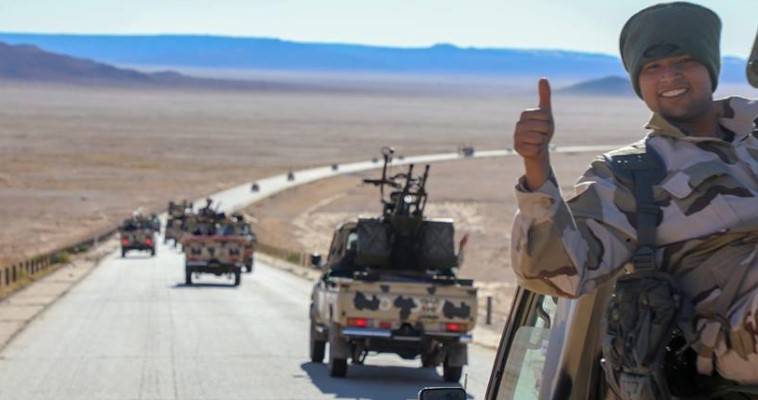Spyros Plakoudas: The Sirte-Jufra line is an apple of discord and a red line for 2 + 4 players
29/06/2020
Egyptian president al-Sisi said without hesitation a few days ago that Sirte (and Jufra in the south) is Cairo’s red line in the Libyan crisis. But why the birthplace of former Libyan dictator Qaddafi, and not the capital of Eastern Libya, Benghazi? But of course because of its key position. The Gulf of Sirte, which happened to be under ISIS control a few years ago, is the “heart” of Libya’s petrochemical industry.
Owning it ensures that the owner controls the pumps and pipes (3 for gas and 11 for oil) of the “Petroleum Crescent”, ie 60% of the country’s mineral wealth. By the way, Libya ranks ninth in the world in terms of oil deposits.
Jufra, south of Sirte, is the “gateway” of East Libya to Fezzan. Without its occupation, the (already fragile) control of Eastern Libya over the tribes of the Toubou and Tuareg would have vanished to the benefit of the Tripoli government. The El Sharara pumping station in Fezzan, by far the largest in the country, was recaptured two weeks ago by Sarraj’s forces and reopened for 24 (!) hours until they were finally expelled by Haftar’s army.
As a result, the Tripoli government’s economic stagnation strategy through closed pumping stations and pipelines will not succeed unless Eastern Libya retains control of the Petroleum Crescent and Fezan, and consequently Sirte and Jufra. In contrast, the non-occupation of these wealth-producing areas by the Tripoli government casts doubt on the smooth reconstruction of Western Libya and shifts the burden of its survival (economic and military) to Turkey and Qatar.
This explains the rejection by Sarraj and Erdogan of the Cairo Declaration and the demand for the handing over of Sirte and Jufra as a condition sine qua non for a truce and resumption of the dialogue. However, the two aforementioned regions are not only a prize for Egypt or Turkey, but also for two other actors in the Libyan crisis, the Kremlin and, finally, Paris.
Moscow has already deployed Wagner Group mercenaries in Sirte and Jufra (as well as 14 MiG-29s and Su-24s in Jufra) as an bulwark against a possible attack by Sarraj’s forces. After all, the victory of Haftar’s forces during the battle of Sirte in early June was primarily due to the contribution of the men of the Wagner Group, the Kremlin’s long arm in the Middle East and sub-Saharan Africa in recent years.
External factors
Moscow is eyeing the transformation of Sirte into a new Russian base in the Mediterranean, in addition to the one it has in Tartus, Syria. In this context, it seeks closer coordination between Damascus and Benghazi to serve its geopolitical ambitions. And although Ankara and Moscow are negotiating over the Libyan crisis, their disagreements over the status of Sirte (and Jufra) make it difficult to reach an agreement. It is rumored that in early June, Lavrov sent Putin’s message to Tripoli and Ankara that Sirte and Jufra were a red line for Russia.
Apart from Russia, however, France is also interested in acquiring two new bases in Sirte and the adjacent Gardabya Airport. France realized with (perhaps fatal) delay that its hesitancy had led in part to Turkey’s victory in Western Libya. Macron no longer intends to cede the two key cities to Erdogan without a fight. Especially in light of the advanced talks between Tripoli and Ankara on the concession of Misrata and Al Watiya to create a Turkish naval and air base, respectively.
In conclusion, the regions of Sirte and Jufra are a red line for four actors, Egypt, Turkey, Russia and France. As a result, the future status of the two cities depends less on the military strength of the local warring factions (Tripoli v. Benghazi) and more on the tug-of-war between foreign actors. The next few days will show whether the silence on the Libyan front is due to the deterrent power of Sisi and Lavrov’s ultimatum or to the preparations of Sarraj and Erdogan to capture the two regions.





